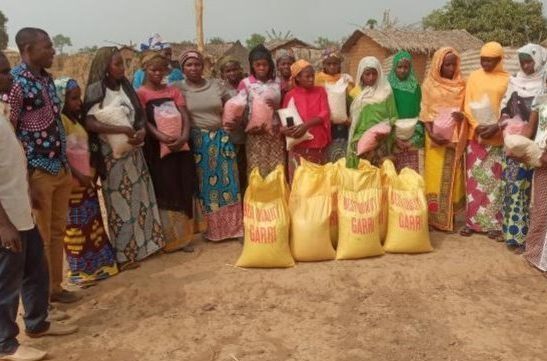
FEDEC and WCS support locals with income-generating opportunities
The Mbam Djerem National Park (PNMD), which covers an area of 416,512 hectares, is rich in biodiversity with the presence of protected species such as the elephant, the guereza colobe and the chimpanzee. The foundation for Environment and development in Cameroon (FEDEC) has been supporting biodiversity conservation activities in this protected area since 2003.
For the period 2020-2022, FEDEC and its implementing organisation, Wildlife Conservation Society (WCS), are co-financing the implementation of an initiative called Boutalli Microproject. This is an action initiated in a participatory manner with the communities bordering the park whose strategic objective is to contribute to the improvement of the agricultural incomes of small local producers, in order to limit their involvement in acts affecting the integrity of the PNMD and its peripheral area.
The operational objective is to support approximately 500 beneficiaries in the production, packaging and marketing of at least 200 tonnes of maize every year. Mbororo youth, women and indigenous communities are the main beneficiaries of the project, which is implemented in partnership with local government ministries such as the Ministry of Agriculture and Rural Development and the Ministry of Livestock, Fisheries and Animal Industry.
For the 2020 crop year, the Boutalli Microproject has distributed 2,600 kg of improved maize seed to 520 small local producers from 20 villages in the Northern and Eastern outlying areas of the PNMD. Among these are 106 Mbororo indigenous women from 8 villages. They received 533 kg of improved corn seeds and agricultural tools to set up 26.7 hectares of corn.
At the start of this initiative, an agreement was signed between the parties. Beneficiaries have committed to develop and maintain production sites on their own funds, while the Conservation service has committed to providing them with improved corn seeds. The communities thus formed a working group. In total, 130 ha of corn field have been set up. The participation of Mbororo Indigenous communities is an indicator of the progressive adoption of agriculture by this group of herders known for their nomadic tradition. Aboriginal women emphasized that the cultivation of maize is a resilience factor in the face of potential epidemics that can affect livestock.

